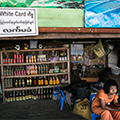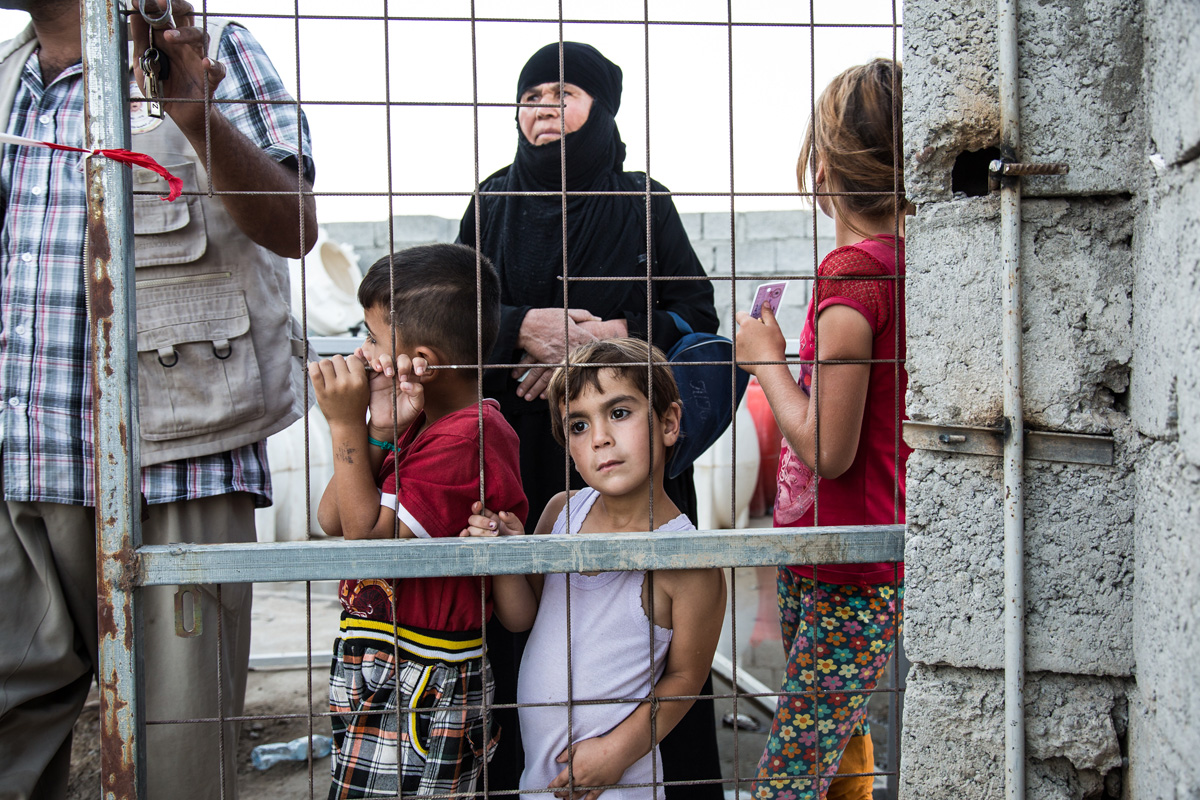-

Assessing Risks of State-Led Mass Killing Onsets in 2017
December 1, 2016
Which countries in the world are most likely to see the start of new episodes of state-led mass killing in 2017?
To help us answer this question, we’d like you to vote in our fourth annual wiki survey. Participation can take as little or as much time as you like, and even just a few minutes of your time will improve our results.
-

Increasing Risks of State-Led Mass Killing in The Gambia
June 23, 2016
The West African nation of The Gambia has made a quite habit of generating headlines for all the wrong reasons. The country’s moniker as the “Smiling Coast of Africa” belies a tragic and brutal reality on the ground. Located in a region that has made tremendous advancements in terms of deepening democracy and expanding both political and economic rights, The Gambia has been mired under the patently dangerous leadership of Yahya Jammeh, who came to power in 1994 by means of a military coup and has since vowed to rule for “one billion years.”
-

Civilian Killings in Northeast India
May 3, 2016
On 22 December 2014, militants killed over 70 unarmed men, women and children in India’s Assam State. Massacres of civilians have become all too common in the region. Forty two died in one afternoon in May 2014 and more than 100 people were killed over several weeks in 2012. Despite this violence the region receives little international attention.
-

What Does 2016 Hold for Ukraine?
February 16, 2016
Guest Post by Christine Mehta, a Researcher for Physicians for Human Rights. In the last few months of 2015, Christine Mehta traveled to Ukraine several times as part of a delegation tasked with assessing Ukraine’s forensic capacity and political willingness to investigate human rights violations related to the conflict, such as torture, extrajudicial killings, sexual violence, and enforced disappearances. “Forensic capacity” means the technical expertise and equipment to collect, preserve, and analyze medical or scientific evidence in a criminal case. Also part of the mission was to explore damage to medical facilities and disruption of health care delivery to citizens affected by the conflict, including internally displaced persons.
-

Renewed Armed Conflict in Southern Turkey
December 16, 2015
Last month, prominent Turkish human rights lawyer Tahir Elci was shot dead on a street in Diyarbakir, southern Turkey. Elci had been an outspoken activist for Kurdish rights in a region that has seen decades of conflict between Turkish security forces and the Kurdistan Worker’s Party (PKK), a militant and political movement for greater Kurdish autonomy. In TIME magazine, Jared Malsin writes that Elci’s murder is a sign of dark and uncertain days ahead for Turkey as it follows the collapse of a ceasefire between the PKK and the Turkish government in July.
-

When It Comes to Forecasting, Put a Number On It
November 12, 2015
Mass atrocities occur rarely, and they are hard to predict. So aren’t risk assessments in the form of predicted probabilities, like the ones the Early Warning Project produces, a little too precise? When we ask the participants in our opinion pool to assign a number to their beliefs about the likelihood that various events will happen, are we really adding useful information, or are we putting too fine a point on things?
-

Remembering the Nuremberg Laws: The True Meaning of Citizenship
November 9, 2015
For most of us, citizenship is a status we can comfortably take for granted. Yet the millions of people who are denied citizenship of the country where they reside often have no rights, no protections, and no recourse for the redress of grievances. The simplest of life’s activities—opening a bank account, getting a driver’s license, or even attending elementary school—becomes a risky and humiliating process fraught with unpredictable dangers and the threat of harassment, arrest, and often deportation.
-

Update: Myanmar Elections and Continued Risk of Mass Killing
November 7, 2015
The Rohingya, a Muslim minority group, will not be able to participate in this election because the government has deprived Rohingya men and women of the right to vote. Rohingya people in Myanmar have endured periods of violence and persecution since 1948; this most recent round of persecution follows a wave of violence unleashed in 2012 which forced an estimated 140,000 Rohingya to flee from their homes.
-

What Constitutes a Mass Killing?
November 4, 2015
As purveyors of early warning, we have to choose a definition in order to conduct and describe our risk assessments. If we aren’t very specific about what we’re attempting to foresee, we can’t build sound statistical models, and we can’t properly direct the attention of the experts in our opinion pool or assess the accuracy of their forecasts.
-

Discrimination and Instability Create New Mass Killing Risks in Pakistan
October 5, 2015
In examining the risk of state-led mass killing in Pakistan, the line between state and non-state actors is fuzzy, especially when it comes to perpetrators of mass violence against civilians. Rather than perpetrating violence themselves, Pakistani security forces—especially the Inter-Services Intelligence (ISI), the Pakistani intelligence services—use militant groups to advance political and territorial objectives inside Pakistan and in contested areas like the Indian-administered Kashmir region. Ongoing violent conflict, especially in Pakistan’s northwest Federally Administered Tribal Areas (FATA), also contributes to increased risks of new mass killing.


